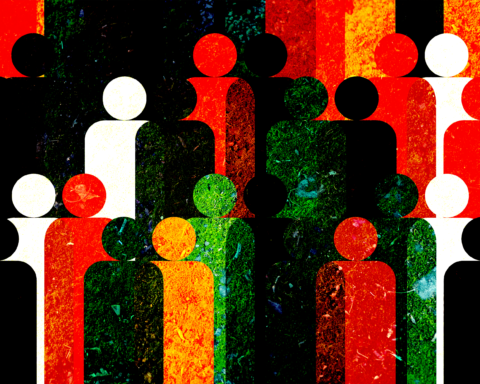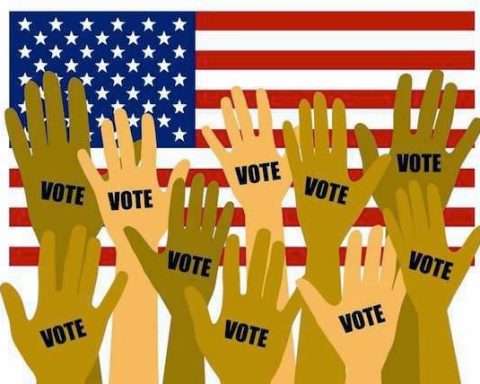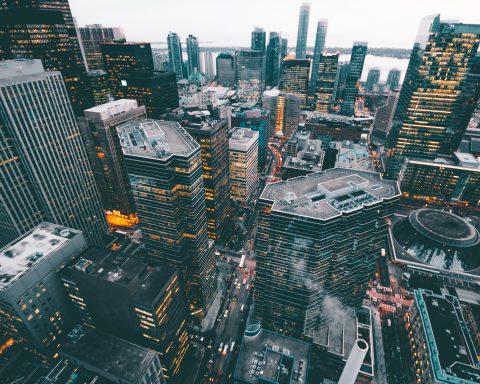Interviewing Alonzo Johnson, Coordinator for Self Development of People
Editor’s note: Last month, Unbound wrote about reparations as beginning with investments in fully integrated and equal education, in equal access to housing and jobs, and in equal and fair prison sentencing. In continuation of that dialogue, we interviewed Alonzo Johnson, Coordinator for the Self-Development of People (SDOP) mission of PC(USA)—a mission which he says is separate from reparations, but grows out of the same historical concern.

Henry: Alonzo, thank you for taking the time to talk with me about issues of poverty, systemic oppression, and racism, and about what the Church can do and is doing to empower people. When we’ve spoken before, you’ve told me a bit about the history of SDOP, and how it was a response of the PC(USA) General Assembly to calls for racial reparations. Could you tell our readers a little bit about that history, and how it shapes the philosophy behind SDOP?
Alonzo: I think we talked about James Foreman, who was active in SNCC, in the Black Panther Party, International Black Worker’s Congress, and the Black Economic Development Conference, which was in Detroit. A national conference of the same name grew out of the one in Detroit, and Foreman was the spokesman of this. The Black Manifesto became its platform, and it asks for $500 million in reparations from white churches, and says that the money will be used for various projects.
Foreman presented the Black Manifesto at the Presbyterian General Assembly (182nd GA) and they listened “thoughtfully”, as it is said. Basically although the message was uncomfortable—getting into what reparations are and the conversation for the need of reparations, which is more uncomfortable conversation—and at that time the UPC as it was called gave an approval to raise funds for SDOP. So the concept came out of this concern and idea that it would fund projects in the mold advocated by the Black Manifesto.
Then on Sep 29th, 1970 the Committee received a mandate from the GA to use funds in “depressed areas among deprived people” so it has its origins in addressing issues of poverty, issues of justice.
Henry: And this background has really shaped how SDOP grants work, no?
Alonzo: Yes…we remain committed to that same mandate, which is basically, in short: [gestures toward brochure and quotes] “assisting the PC in carrying out the goal of working toward the self-development of economically poor, oppressed, and disadvantaged people who own, control, and benefit directly from projects that promote long term change in their lives and the community.”
So this means several things: one, that it would move away from a paternalistic model. It would also move away from a model of toxicity, right—Robert Lupton, he talks about “toxic charity”. And Dambisa Moyo, a Zambian economist, has a book called “Dead Aid” about this kind of paternalism. I think that a unique aspect of SDOP is that its creators understood the importance of not following a model of paternalism, understood that if we’re going to have any sort of development work then it’s going to have to come from the people of these communities, who have often been marginalized from the ability to be self-determining and to have access to economic empowerment.
Henry: So the really interesting thing to me, then, is that when people talk about “reparations” in the sense of what they think it is, they often talk about direct “handouts”—and that could be considered kind of the paternalistic approach, so it’s interesting to me that on the one hand you say SDOP came from the need for reparations, and yet it also rejects the model that everybody assumes reparations would have.
Can you explain to me exactly why it is so crucial that SDOP works in this way, and maybe even answer, is this the realization of what reparations should be—though not just from the church? Should we start thinking of reparations as programs of empowerment rather than programs of restitution? Or are they useful separately?
Alonzo: Well, no. It’s difficult because reparations really can’t be relegated to a program or a series of handouts. And reparations really can’t look exactly like SDOP, because SDOP doesn’t encompass the larger questions of “who owns what” and how restitution is given. We can’t take years of oppression and put it in a paycheck—it’s very hard to do that.
So when we talk about reparations, what are we talking about? We’re talking about a series of things: there’s definitely resources, right, but there are also non-monetary resources–what does it mean to have schools or colleges that are built on slave money? What does that mean? And I think that institutions will have to wrestle with what reparations will look like in their context, because in that case it would be insufficient and maybe even insulting to issue a check. It’s more than that, it’s about social power. So it’s not going to be a one-size-fits-all situation, it might be more diffuse.
With SDOP, we really came out of the concern for reparations. The question was how do we do the work of development and support community partners without being paternalistic. So the reparations piece is not so much in the action of how we do things—it’s in recognizing that there is power in communities. And for a long time communities have been doing all kinds of things and not having the access to do the types of things that would benefit folks in the community. The concern created the model.
For reparations it’s a larger question: who do these things belong to? So we look biblically, to the idea of “jubilee” justice, finding what things belongs to and giving it back. So you have an institution that finds it was funded by slave money. Who does that go back to? And who gets to determine what goes to whom? SDOP doesn’t do this work of examining what really belongs to whom—we don’t do our work thinking that we are giving reparations, because it’s not—but SDOP does try to model an answer to that last question by having programs owned, controlled, and led by the people affected.
Henry: What is the end goal for individual SDOP projects? Do we expect each group to gain the legs to become self-sustaining, or do these kinds of systemic oppression more often require ongoing support?
Alonzo: The end goal is the end goal(s) that they set, and actually our criteria for funding is a plan that is actionable. The goals are diverse—community gardens and programs fighting mass incarceration—but they share the criteria of building capacity and self-determination. Our end goal is to walk with our community partners, and for people to have human dignity. And everybody is going to have their own particular aspect of what their long term solutions are going to be.
Henry: So, not in terms of reparations, but in terms of the systemic ongoing injustices: What do you think it would take to really create…maybe not a complete fix, but a paradigm shift about inequality and the assumptions of white privilege? What actors do you see as being necessary, and maybe sufficient, to do that? The church is one, right?
Alonzo: The church is one, but the children are another. Young people are standing up—and it takes effective communities to do this—we’ve seen a significant change of politics in Alabama. We’re looking at these young people taking on the issue of gun violence, and we see that there is people power.
When we see those kind of things, people standing in the street against racism; when we see that they are engaging the “powers and principalities” of poverty and racism, of gender discrimination—that’s what it’s going to take. A sense of power by those who are affected, those communities. And as people get more engaged in the political process, they’re thinking about how those things can be changed.
But we also have a direct action piece, too—it is the churches that are engaging communities in after school programs, etc. From the SDOP perspective, it is our local SDOP communities, who are engaged in the community. It’s people power. “People investing in people,” was our saying for a long time, and I think the reality is that what is going to make this change in our society—I think it’s going to be people.
And we see it…look what’s happening even now in Kentucky, it’s the teachers who are standing up and saying “We are done. We are demanding these things.” It’s the Poor People’s Campaign, it’s the “Me Too” movement, it’s these young people going up against gun violence, it’s Black Lives Matter, it’s people. But it’s that engagement in the process, the political process, and engagement in the community. It’s relationships getting formed—for SDOP, the church’s connection to the community. When we’re connected to the community we get to be more aware of what communities are facing—and how our structure is set up, building those relationships is mandatory. Site visits, conversations–we meet the folks.
I guess the magic word here is intersectionality. As we get more intersectional we see how all these things affect one another, so that the Parkland students are connecting with Black Lives Matter, with folks who have been ignored.
When people get together, they do some incredibly mighty things. (We called it the church!) So making those relationships is key to transformation.
***
April 8th was “Self-Development of People Sunday,” when PC(USA) collects for One Great Hour of Sharing and the work of human development. This piece was done in response. It’s crucial to remember that the church has within it a mission that is dedicated to anti-poverty.
See the event video for SDOP Sunday, below:
What is Self-Development of People Sunday? Learn more about this April 8th celebration in the video below and learn more here: https://t.co/PkFYto4zF5 3PCUSA pic.twitter.com/JAv2uhsKvl
— Presbyterian Church (@Presbyterian) March 27, 2018
Interviewee Bio: Rev. Alonzo Johnson provides direction, coordination, strategic and theological vision to the Presbyterian Committee on the Self-Development of People ministry and its commitments to social, racial, and economic justice. He serves as the key liaison between the National Committee on Self-Development of People and the Presbyterian Mission Agency, and he promotes and interprets the ministry of SDOP to congregations, middle governing bodies, and ecumenical & community partners.






Unbound Social